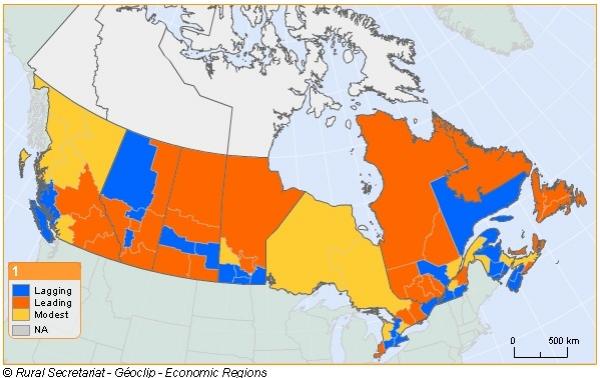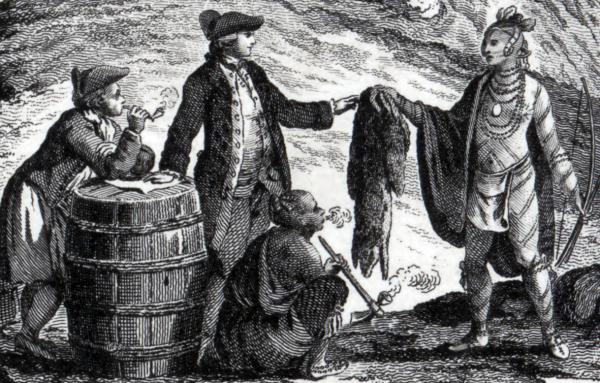Better Internet service for Indigenous communities? Right. Then what?
In rural, remote and northern communities across Canada, First Nations technicians are taking on Internet connectivity challenges themselves. Then what?

<u><em><strong>CAPTION:</strong>
<a href="http://rural-research-network.blogspot.com/" target="_blank">Broadband across Canada? Not good (Source: Rural Research Network)</a>
</em></u>
A recent article about better Internet service crucial for Indigenous communities in Canada describes the hard work done in the field to “treat broadband as a community resource and enabler for economic development, cultural resurgence and language revitalization”.
The rewards should be huge because, says the article, the Internet may be the only thing that, in remote regions, “connects people to opportunity: to online services, health care, education and chances to innovate. With broadband, isolated First Nations connect to the digital economy, gaining more control over self-governance and culture.” (emphasis mine)
The authors of the report think that, in order to connect all First Nations communities, three actions can support Indigenous innovators to expand broadband all across Canada:
- changing rules around access. We need adequate, affordable, open access to networks.
- funding specific to community-based and not-for-profit organizations [that] facilitate a sustainable connectivity model in remote regions
- government and the private sector must partner with communities [to] work jointly in network planning and use.
Then what?

<u><em><strong>CAPTION:</strong>
<a href="https://en.wikipedia.org/wiki/Alcohol_and_Native_Americans#Colonialism" target="_blank">Fur traders doing business in Canada, with a barrel of rum. (Source: Wikipedia)</a>
</em></u>
I may be wrong, of course, and would be happy if I were. But judging from that article and those three actions, I doubt that they would give First Nations “more control over self-governance and culture”. Especially culture.
If what you care about is self-governance and culture, yes, broadband is necessary. But giving only broadband, without already having a serious plan to place on it, from the very beginning, what really matters, is quite likely to backfire.
This is a general issue, of course, not specific to First Nations or Canada. These days, if you just give people a smartphone and broadband connectivity, they will almost surely fall and get lost in the single, global pot constituded by Facebook, Amazon, Google, Whatsapp and similar networks. In the worst, worst cases, providing access, without alternatives, … to services that need to be addictive and polarizing to survive, may cause problems like these:
If those stories sound familiar, it may be because they remind you of this one:
This has nothing to do with race, ethnicity, or anything of the sort. If you give anybody access, all of a sudden, without proper information or alternatives, only to tools that look really cool and harmless, but are intrinsically more dangerous than others, that person will very likely hurt himself, period. Regardless of race, religion, education, gender, whatever.
The way to go
The Internet is useless without software and website to communicate and work. This is why so many fall into the traps of Google, Facebook etc.. one minute after they get broadband. The way to go, in Canada or everywhere else, is to prepare, deploy and promote, even before broadband reaches a region, alternative services for both individual needs (email, online identity, sharing, blogging…) and collaborative work. In practice, I strongly suggest that Canada’s First Nations, and any other community in the same situation worldwide, adopt and promote, without waiting for broadband, software and services that actually protect local culture, and real local needs. Services like these, for example:
- Personal/permanent clouds (for individuals)
- CommonsCloud (for communities)
FULL DISCLOSURE and final remark: I am the author of the percloud proposal, and a Board Member of the Free Knowledge Institute, which is one of the developers of CommonsCloud. However, those are only two of the possible, and Open Source, solutions to the problem discussed here, and are cited here only as example. And of course, it is perfectly possible that the people working on rural broadband in Canada already have, or are preparing, alternatives like these, which were simply not mentioned in the article. If so, great, and please tell me about those alternatives!
Who writes this, why, and how to help
I am Marco Fioretti, tech writer and aspiring polymath doing human-digital research and popularization.
I do it because YOUR civil rights and the quality of YOUR life depend every year more on how software is used AROUND you.
To this end, I have already shared more than a million words on this blog, without any paywall or user tracking, and am sharing the next million through a newsletter, also without any paywall.
The more direct support I get, the more I can continue to inform for free parents, teachers, decision makers, and everybody else who should know more stuff like this. You can support me with paid subscriptions to my newsletter, donations via PayPal (mfioretti@nexaima.net) or LiberaPay, or in any of the other ways listed here.THANKS for your support!